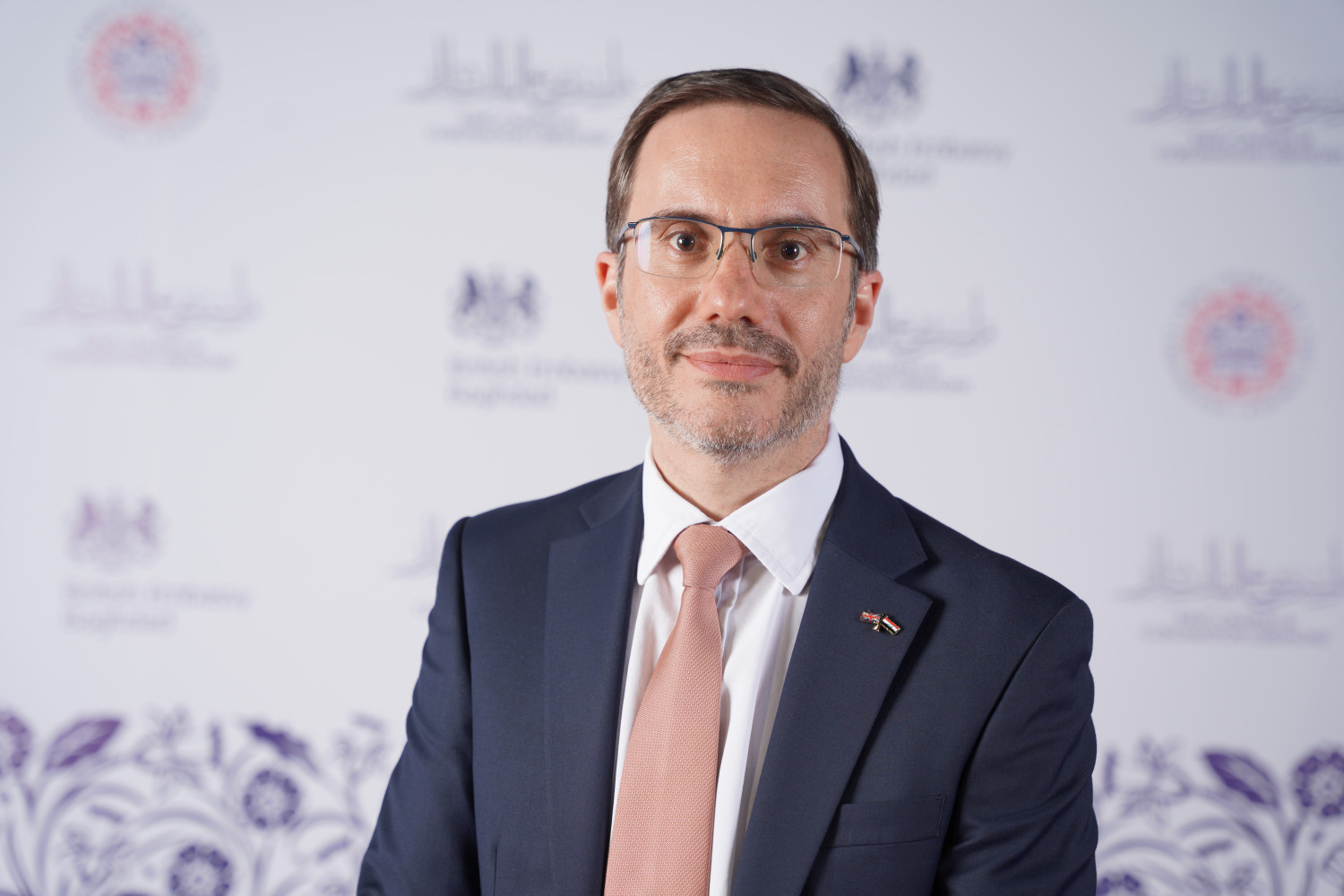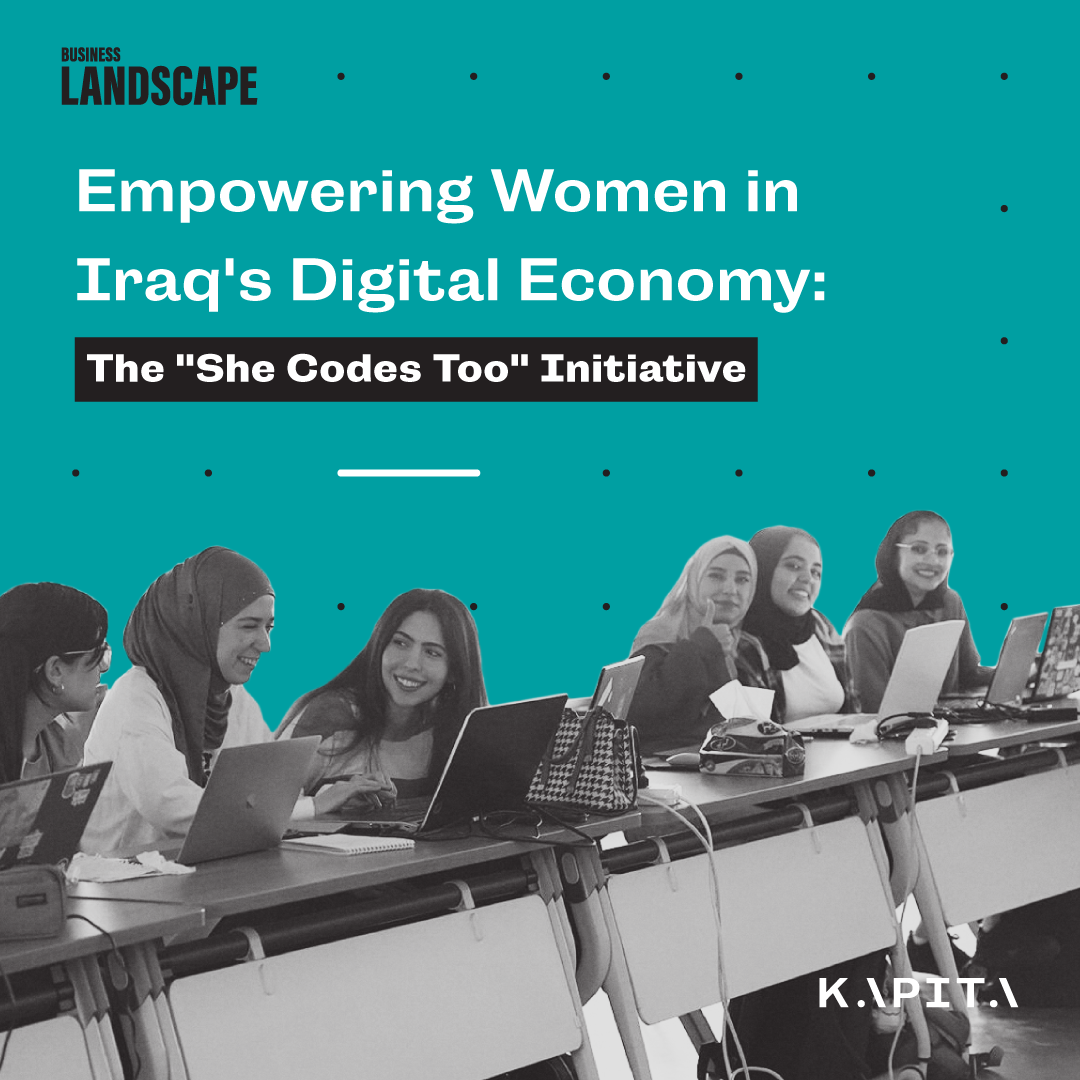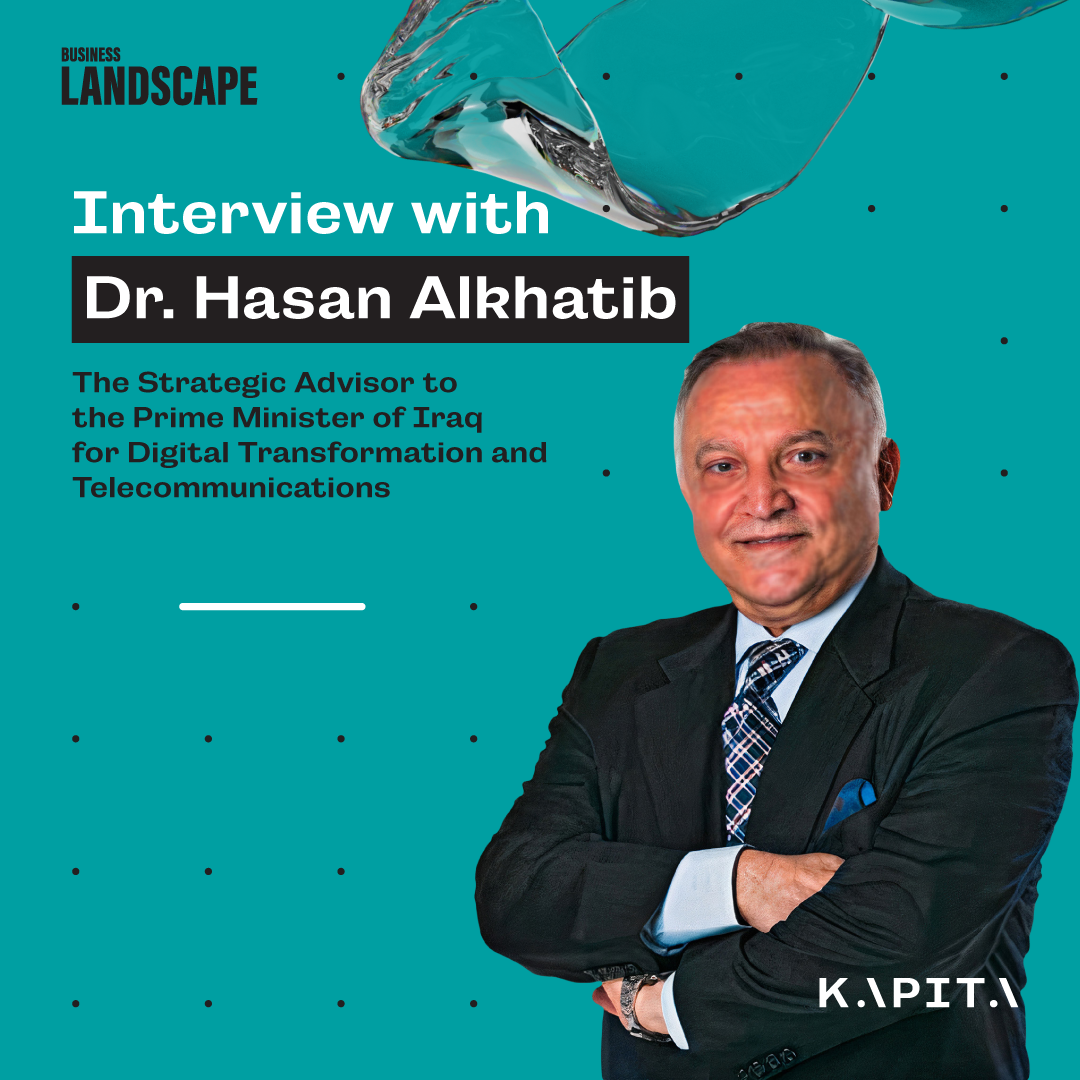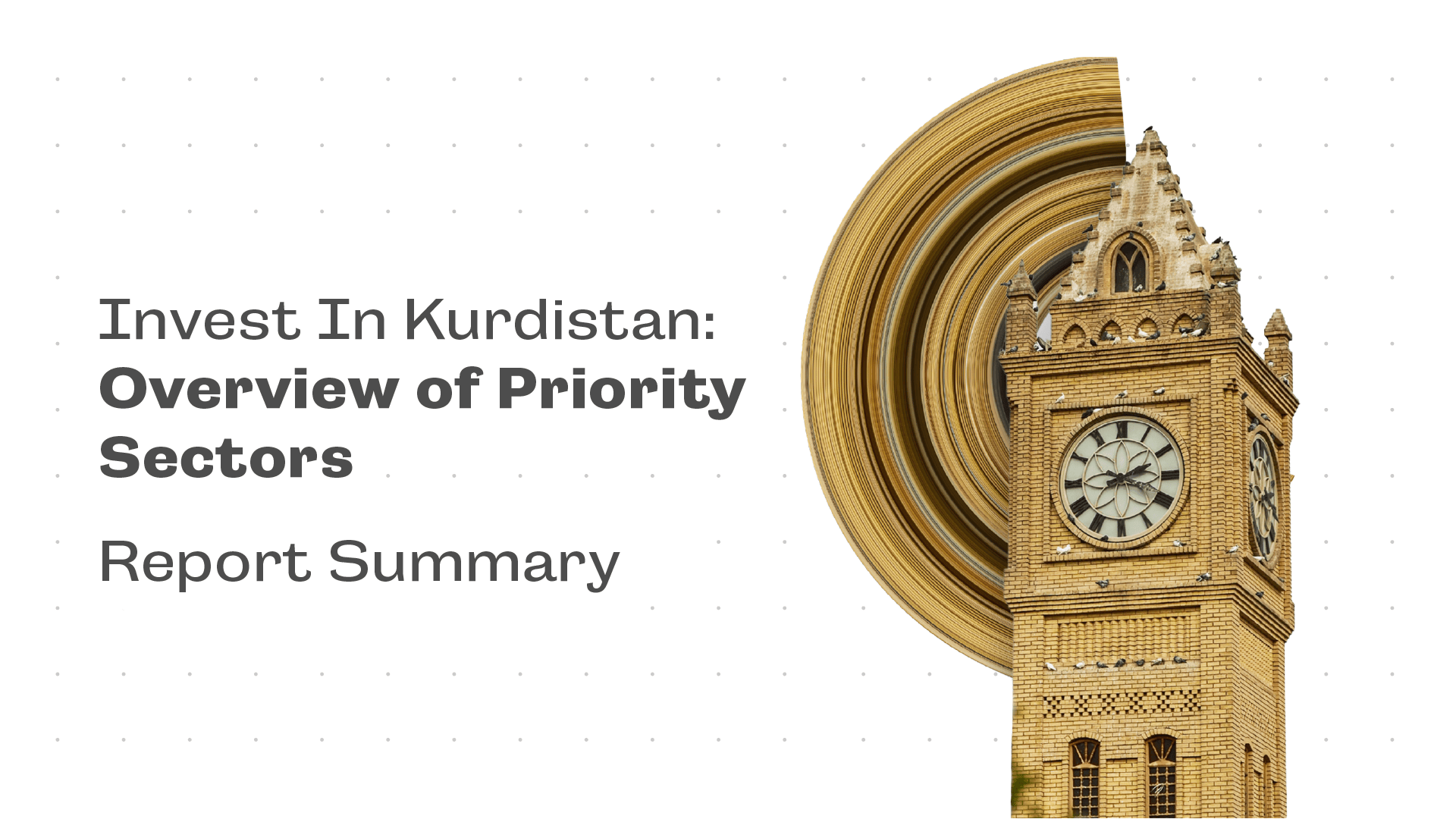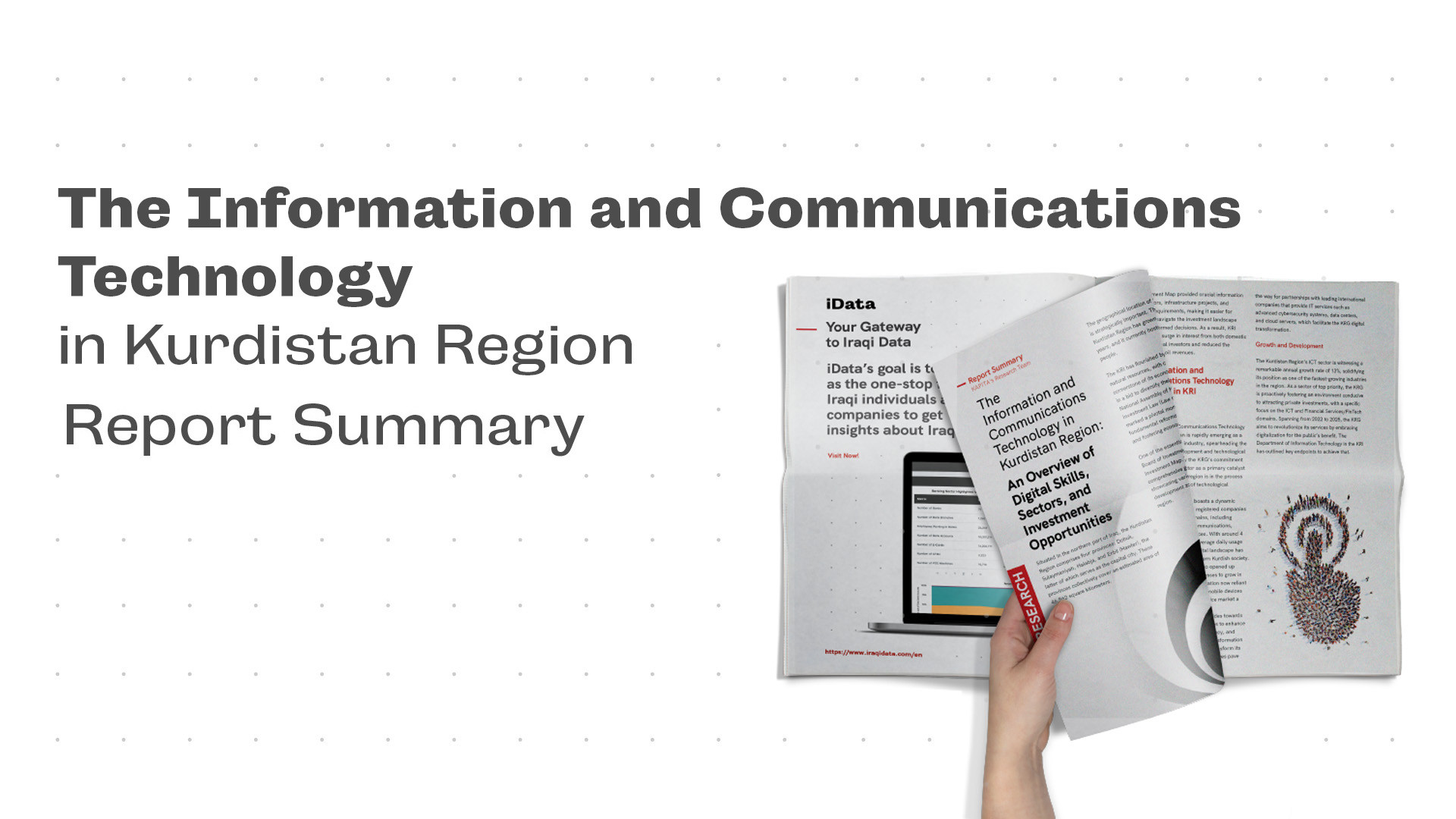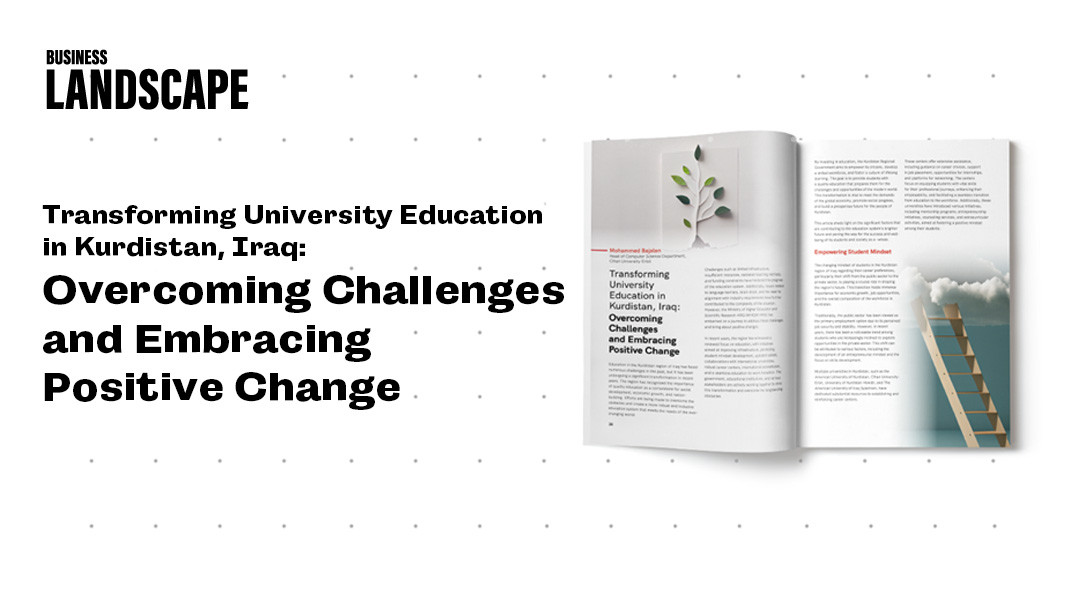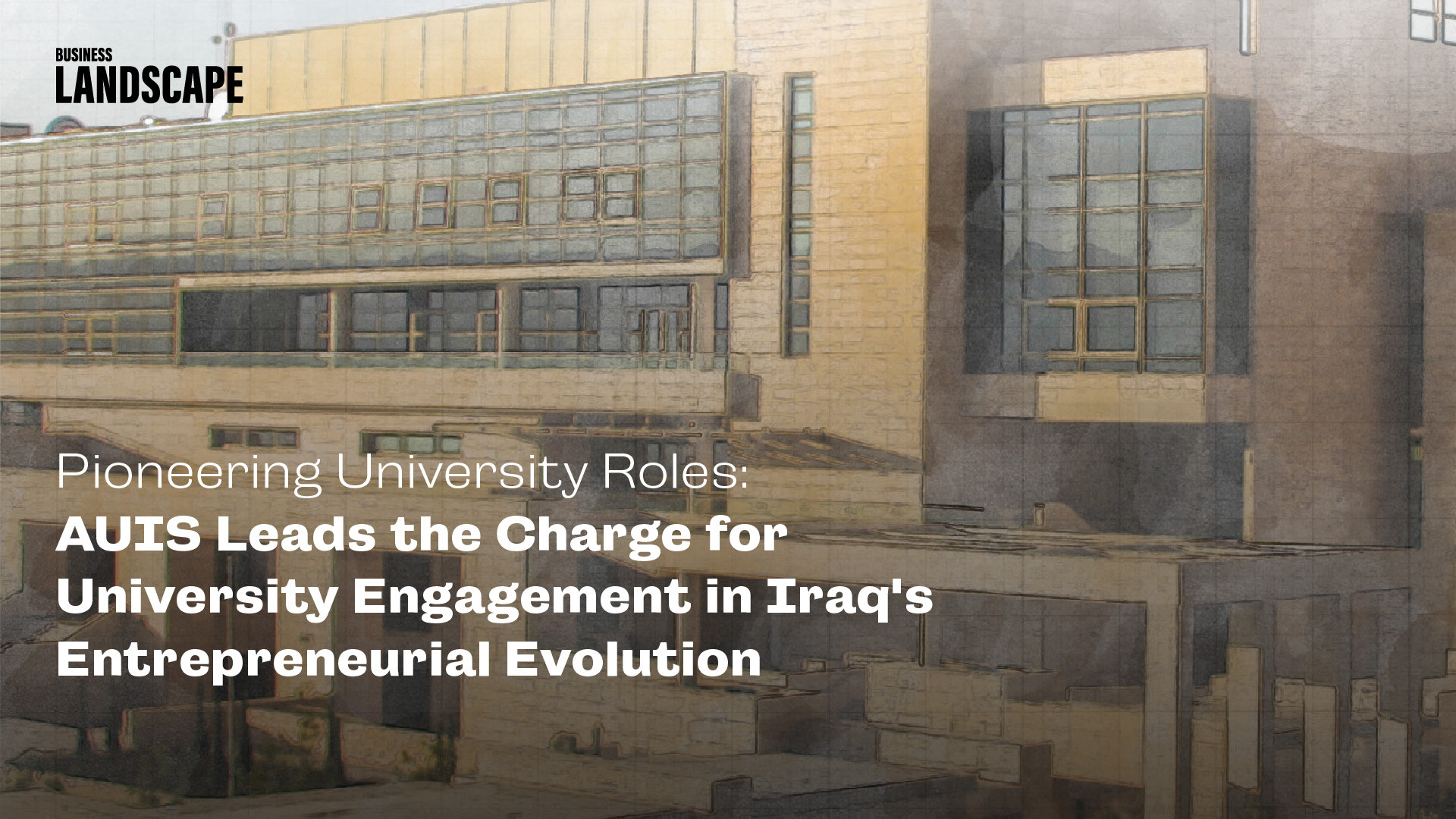Business LANDSCAPE Interview
Mark Bryson-Richardson
British Ambassador to Iraq
Mark Bryson-Richardson is a British diplomat who currently serves as the UK Ambassador to Iraq. He has an extensive background in diplomatic service, with experience in various countries and roles in the Middle East and North Africa region.
Mr. Bryson-Richardson served as the Deputy Head of Mission (DHM) at the British Embassy in Khartoum, Sudan, in 2005. He later joined the Foreign and Commonwealth Office and held several key positions, including Deputy Head of Libya Unit from 2011 to 2012 and Head of Libya Group from 2012 to 2013. He also served as the Deputy Ambassador to Somalia in 2013 before being appointed as the Deputy Ambassador to Baghdad, Iraq, from 2013 to 2014.
In 2014, Mr. Bryson-Richardson was appointed as the Director of the UK Government's Stabilisation Unit, where he played a pivotal role in coordinating stabilization efforts in conflict-affected countries. He then served as the Director of Middle East and North Africa for the Department for International Development (DFID) from 2019 to 2020, and subsequently as the Director of Middle East and North Africa for the Foreign, Commonwealth, and Development Office in 2020.
In this interview with His Excellency, Mr. Bryson-Richardson talked to the Business LANDSCAPE about the issues the British Embassy is addressing in Iraq, their efforts in building ties between Iraqi and British businesses, their efforts in mitigating the impact of climate change in Iraq and their support of the renewable energy projects. His Excellency also told us about their work in promoting the growth of the Iraqi private sector and their initiatives in the realm of education.
What top issues is the British Embassy currently addressing in Iraq?
There is a set of issues where we are working very closely with the Government of Iraq to support their priorities. I think we have all heard from the Prime Minister what those issues are. Still, our particular interest is supporting economic reform, creating jobs in the private sector, expanding the private sector, and improving services. Associated with that, there is a range of issues that we think are important, especially education, promoting human rights, and supporting freedom of expression. Also, moving into shared challenges, whether regional stability and trying to de-escalate some of the tension in the region or global challenges caused by climate change.
What are the efforts of the British Embassy in Iraq in promoting trade and investment between Iraq and the UK?
The Embassy has a vital role to play in trade promotion, making sure that British companies are aware of the opportunities here, connecting them both to opportunities in the Iraqi Government but also with Iraqi businesses for business-to-business opportunities, and then working to see how we can support that. For example, supporting the UK Export Finance decreases the uncertainty and de-risks some of that engagement for British companies. We are very keen to continue building those connections. We are also working with the Government of Iraq to remove barriers to trade to reduce the length of time procurement currently takes and then also ensure payments and follow through on those contracts.
We are working to improve what we would call contract sanctity, which is a big issue that will give a lot of confidence to British companies and all international investors and international companies who want to do business in Iraq. In addition to improving the material and processes and raising it to meet international standards. We also encourage the Iraqi Government to digitize payments and processes that would enable them to plug-in a lot more into the international market. This would get benefits in terms of speed of procurement and processes and access to a bigger pool of partners to work with.
We have seen some increases in trade, the formal trade figures, which do not include investments, have increased by almost 40% for 2022 compared to 2021. However, there is more that we should be looking to do. British companies are active in a range of sectors, and infrastructure at the moment is one of the largest. As well as education, medical and pharmaceutical services and products, food and drinks, and more.
How is the Embassy building business ties between British and Iraqi citizens?
We already discussed promoting trade between UK businesses and Iraqi businesses. But within that, there is the role that British companies play as a business model, how they operate in Iraq and across the world. They are focused on employing as many Iraqi citizens as possible as part of those businesses. They do not operate in a model where they bring in many expatriate staff. In order to invest in Iraqi people and have a long-term sustainable model that offers something back, those companies also have extensive training schemes, enabling Iraqis to access international training and qualifications in different settings. Some of the bigger companies offer opportunities to engage in their regional and global networks in other countries, further building skill sets. Certainly, all the British companies that we engage with in Iraq are focused on building local Iraqi capacity and providing employment opportunities. They see that as their long-term model and try to fully nationalize their staffing footprint and engagement in the country as much as possible.
What is the British Embassy's role in supporting renewable energy projects in Iraq? Can you tell us about any initiatives that you are currently working on?
Renewable energy is a priority for us, as we have been looking to transition our economy for quite some time, and we have clear firm legislative commitments to net zero. We have a range of expertise in renewable sectors. Particularly wind energy, but also solar, even though we are not quite as blessed with the same weather as Iraq. A lot of knowledge can be shared regarding how to incorporate those renewable forms of energy into the electricity grid in Iraq and make the grid more effective and efficient. There is also a range of technical expertise to engage in gas capture. There is a considerable climate and economic benefit to Iraq by doing more to capture the gas, which could generate significant revenue of around $5 billion a year, on top of the very substantial climate benefits. Hence, building on some of the UK's expertise in renewables, exchanging some of that, and engaging in these technical but highly lucrative gas capture programs is an area where UK businesses can engage in Iraq.
How does climate change affect Iraq’s economy? And how is the British Embassy contributing to mitigating the impact of climate change in Iraq?
Climate change is certainly one of the biggest threats that Iraq faces at the moment in terms of its impact on the country and its people. We have seen multiple challenges, such as reduced water supply, both from rainfall and river flow, increased salinization, and increased desertification. This will have a significant impact on the country, where people can live and operate in the country. As well as on the economy as we can see a drastic decrease in agriculture production and in the industry since it is dependent on electricity and water supply.
Moreover, the global shift from hydrocarbons as a response to climate change will impact Iraq in the long run as global demand for oil will decrease. Iraq must accelerate its efforts to diversify its revenue base because oil demand could fall by as much as 75% by 2050. Therefore, developing a broader economic base for the country will be crucial.
We are working on different projects for climate change response, notably through a program with the UNDP where we provide technical support over several years to help Iraq implement its climate change commitments, facilitate energy transition, and improve its water governance. We aim to make more efficient use of the water resources that it does have and manage climate risks, prepare for drought, and further reduce risks of the impacts of climate change on the population. However, this is an area where more needs to be done. It was great to see the Prime Minister bring his government together in Basra a while ago to prioritize this challenge, but we all need to do much more in this regard.
The British Embassy has carried out different initiatives in the education sector, including scholarships for graduate students to study in the UK. Can you tell us more about those initiatives?
Education is fundamental for a lot of the progress that Iraq is looking to make in terms of both the economy and broader issues centered around human rights and climate depend upon education. The more we can invest in education and support Iraqi youth and students as they move forward, the more positive impact it will have on Iraq. We are keen to keep working in the education sector, and we are continuously exploring opportunities to improve the reality of this sector.
We are most active in Iraq through the British Council. They have a national capacity-building program and work with the European Union to improve access, inclusion, and the quality of teaching in 30,000 public schools across Iraq. They are also working with the Ministry of Education and environmental civil society organizations to improve school understanding of climate change and actions that can be taken to address that.
We also have an active English language network, working with English language teachers to improve the standard of English language teaching across the country and enable more Iraqis to access it. Alongside that, some British universities are interested in operating here. We look forward to seeing the British International University in Erbil open its doors in the coming months.
Furthermore, our Chevening scholarship program sends around 25 future leaders of Iraq through a fully funded master's program in the UK each year. We also offer vocational training and technical support to various partner organizations in Iraq, including a military education program working with the Iraqi military. And we do some training and exchange expertise with the Iraqi judiciary and experts across the board.
There are also some British companies active in the education sector here; some British universities are also looking to enter the Iraqi market. There are a number of British schools that operate across Iraq, and a significant vocational training program operating in a range of industries, offering technical qualifications and standards.
What challenges does the British Embassy face in working in Iraq?
There is a fairly deep history and a connection between the UK and Iraq that provide us with an advantage as we understand each other, and a lot of our systems and processes are the same in terms of how we approach some issues. However, there are some challenges. To boil it down to two main ones: we need more people across the Embassy who speak Arabic and can engage with more partners in Iraq. We are lucky to have a number of Arabic speakers, but it would be better to have even more. We have seen significant improvements in the security situation in the operational environment, particularly over the last year. Yet that still impedes our ability to operate and attract UK partners, businesses, and organizations to come and do more in Iraq. We see improvements being made and hope that trajectory will continue.
How is the Embassy working with the Iraqi Government and private sector to build a stronger private sector and promote economic growth?
The first thing is that we work closely with partners in the international community. There is the Iraq Economic Contact Group, which comprises the G7 member states and the European Union, that supports the government's economic reform agenda and activities. We also work with the World Bank and have provided funding to enable technical assistance and sharing expertise with the Government of Iraq. In addition, we are developing an economic reform program designed to support the stimulation of the private sector, which is crucial for diversifying the revenue base for the government and creating jobs outside of the public sector. This will provide more employment opportunities for the youth across Iraq. We support this through our bilateral programs, but crucially, we work with partners in the international community to coordinate our efforts. I am hopeful that another big step that will happen shortly is the Parliament's consideration of Iraq's membership in the European Bank for Reconstruction and Development. This is another great opportunity for us to access funding and projects and support Iraq's private sector.
What is the Embassy's vision for the future of UK-Iraq relations, and how do you see this relationship evolving over the coming years?
We see that the economy today is going through an important transition, but it faces a number of challenges. The economy is heavily oil-dependent. The government needs to diversify its revenue base, improve tax and customs, and grow the private sector and other sources of revenue. Additionally, there is a domination of public-sector employment rather than private-sector employment, which places a lot of pressure on the budget today and in the future in terms of salaries and pensions. The Iraqi Government has created the Coordinated Committees to address these issues, and we stand ready to support them.
In terms of where we see the future of Iraq-UK relationship, the focus is shifting from solely political and security issues to a range of common interests and challenges. So, we are also working on issues related to trade, education, and building cultural links. We are exploring cooperation in areas such as sports and other activities.
The Iraq-UK relationship is bilateral in a wide range of activities, but especially in addressing global challenges. Iraq has played a positive role in some regional issues and in promoting understanding between countries in the region. We have touched on climate change, and Iraq has a potentially very positive role to play in this area. It needs to do more in terms of gas capture and methane, but it has been a leading example by being one of the first countries in the region to drop its Nationally determined contributions (NDC). It was the first country in the region to join the United Nations water convention and play a leading role in that. We are really looking forward to working together in those areas and doing more in that shared global space.
What kind of trades, businesses, or things have you personally found interesting or surprising in Iraq?
This is my second time in Iraq. I was here in 2013/2014, so some of the things I see happening now started back then and perhaps are not too surprising. However, I think there is a vast breadth of activity taking place and engagement between the UK and Iraq. Every now and again, I come across projects and businesses that have a strong British connection.
In the education sector, I spoke about some of the projects coming up. It has been very pleasant to see the extensive range of cooperation in schools, whether in international or Iraqi curricula. The extent of vocational training is much wider and deeper than I thought, with City and Guilds working in various industries here providing that training and support.
While I would not say I am surprised, but I am always struck by the extent of that history and those connections and the fact that it is continuing today. I was at the Defence University just a while ago, talking about British foreign policy. We have been doing training on cybersecurity and issues with the Iraqi military and other partners. The extent of that relationship is really deep, and occasionally we forget that this is not a relationship that started in recent decades. It is a relationship that is more than 100 years in the making.
